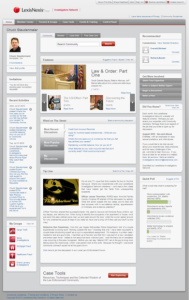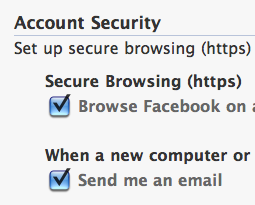Welcome to the the next installment in my series of social media tips. These are aimed primarily at a police audience, but hopefully applicable to a wider group of people too, especially those in the public sector. This series of posts will aim to identify some good practice and useful hints and tips for police officers and staff to consider when using social media.
Part 6: ’We don’t do that here’
 For many of you this series may seem interesting but ultimately pointless, as your force won’t let you use social media. Between ICT departments that block access to most social media sites, Professional Standards departments that advise officers never to use them, and chief officers who don’t understand what social media is, it can sometimes feel like an uphill battle.
For many of you this series may seem interesting but ultimately pointless, as your force won’t let you use social media. Between ICT departments that block access to most social media sites, Professional Standards departments that advise officers never to use them, and chief officers who don’t understand what social media is, it can sometimes feel like an uphill battle.
Here a some ideas that might help you persuade your force to use social media…and a suggestion for what to do if they still won’t.
Language – speak English. Most folks don’t understand talk of tweets, followers, liking and status updates. Easiest way to lose the argument before you start is to sound like a 10 year old explaining the rules of Yu-Gi-Oh or which Pokemon is best.
Don’t sound like a 10 year old
 Benefits – talk about engagement and conversations by all means, but nothing gains the attention of your managers more than operational examples of benefits. There are real examples of using social media to bring offenders to justice – @hotelalpha9 gives examples of tracing graffitti artists through facebook, and there are plenty more examples out there.
Benefits – talk about engagement and conversations by all means, but nothing gains the attention of your managers more than operational examples of benefits. There are real examples of using social media to bring offenders to justice – @hotelalpha9 gives examples of tracing graffitti artists through facebook, and there are plenty more examples out there.
Cost – in the current climate there will always be an expectation that new stuff saves money, or is cost neutral. Push the fact that all of the tools you need are free.
Time – the other objection you will often get is the fact that you will be spending hours in front of the computer updating your status. This is a) not true (one or two updates a day are more than enough, b) if you use Twitter or Facebook on a mobile phone, updates can be done in otherwise ‘dead’ time whilst waiting for people etc, and c) irrelevant, as a conversation with the public about policing issues is just as valid a use of your time online as it is offline.
Trust – get used to the fact that as soon as you say you want to use social media, professional standards will assume you are suddenly incapable of talking to the public without getting everything approved and signed off in advance. Stress that they already trust you to talk and make decisions, to drive fast cars and tackle people physically, (and in some cases to use a firearm) – why does this trust suddenly disappear when you are typing a few words on a computer?
…and if all of this fails to persuade people? Many of us started using personal time and computers / phones, stressing that we were not official police representatives and posting about police issues. This may not be a risk you want to take…but often leadership requires taking some risks, and only when people see the benefits for themselves will they be willing to follow.
Images:
This way – image Steve Snodgrass on Flick’r
Pokemon by gochie*on Flick’r
This post was previously published on Partrdigej’s blog.
Previous posts from the Social Media Handbook Series:
Part 1: What Social Media networks should I use?
Part 2: How do I get followers / friends ???
Part 3: Policies / Strategies / Guidance??
Part 4: Ten things to have on your page to drive up interest??
Part 5: What to do when things go wrong

Justin Partridge
Justin Partridge is a senior manager for Lincolnshire Police in England. He also works on Local Policing and Partnerships for the Association of Chief Police Officers (ACPO).
Justin Partridge has worked in the public sector since leaving university, and for the police since 2003. After being one of only three non-sworn staff selected for the prestigious Police Strategic Command Course (for those who aspire to the most senior posts in UK policing), he started working on the national Local Policing and Partnerships area with chief officers from across the UK, and with partners from the Home Office, NPIA, APA and elsewhere.
Justin is passionate about making a difference to people, and see social media and new technologies having a major role in this – especially in policing and the wider public sector. He blogs on a variety of issues, predominantly around police and technology, and can be found on Twitter talking about much the same.
 What’s the one thing people can see even if they aren’t connected to you on Facebook?
What’s the one thing people can see even if they aren’t connected to you on Facebook?










